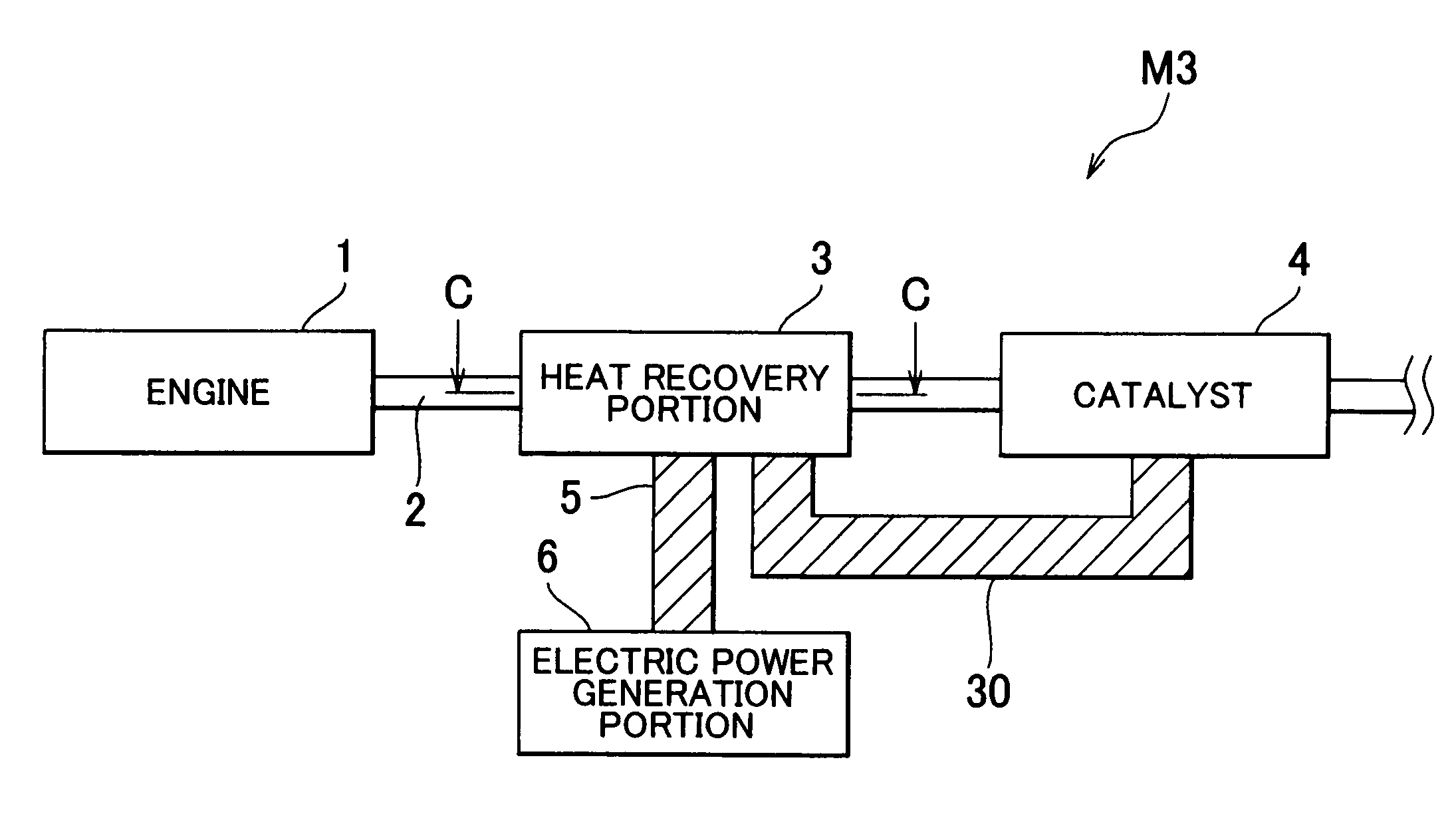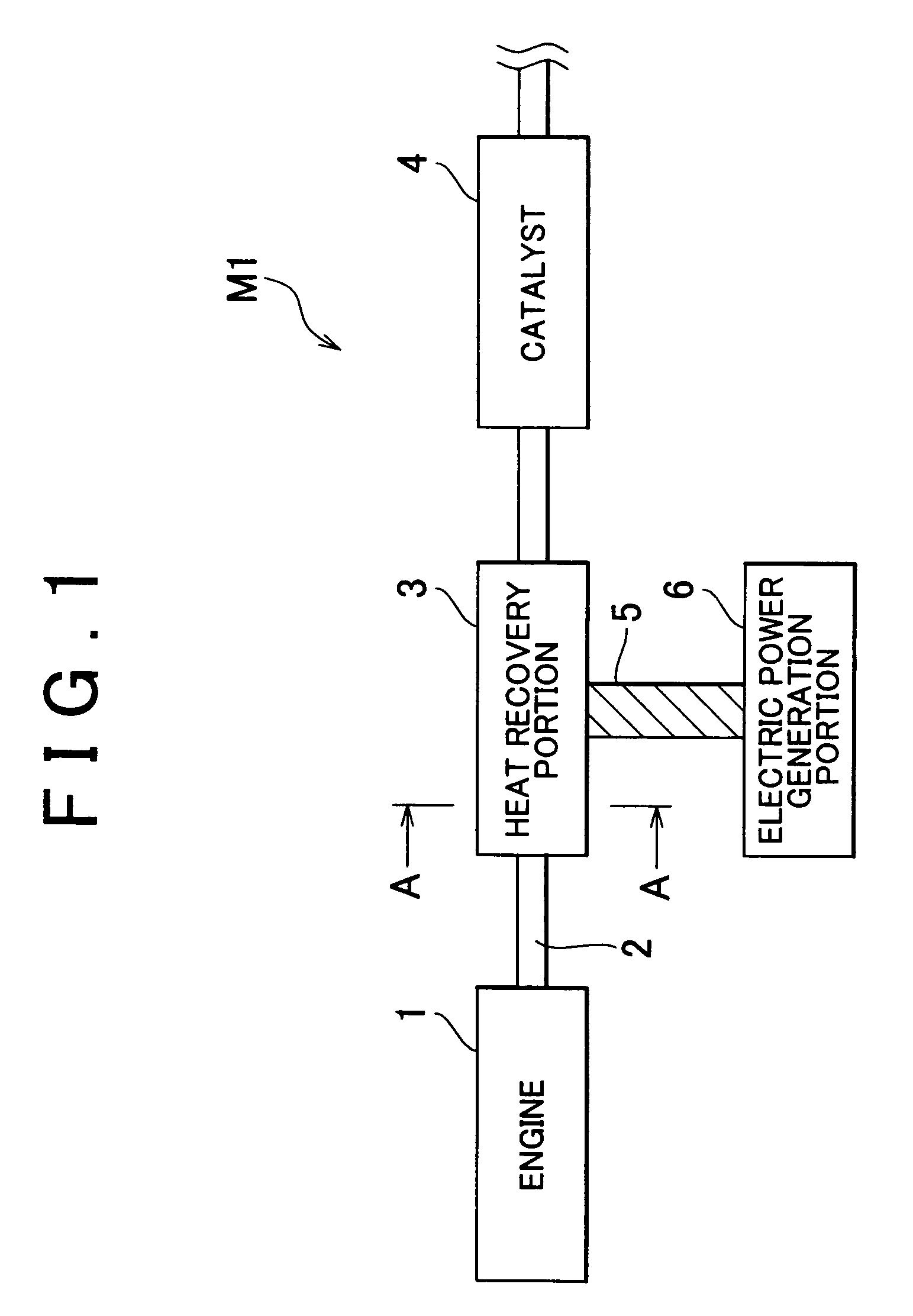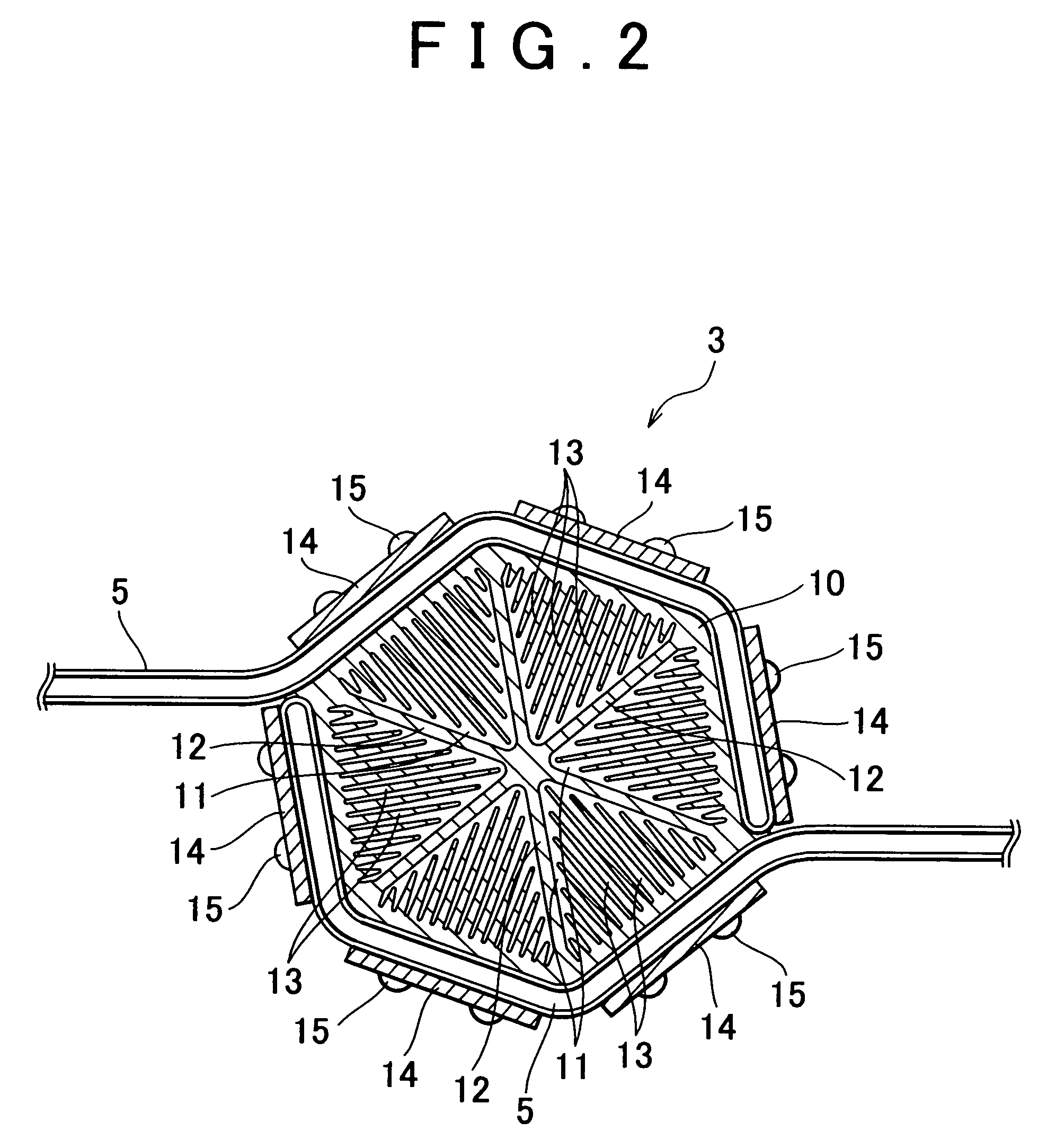Exhaust heat recovery system
a heat recovery system and exhaust heat technology, applied in the direction of lighting and heating equipment, process and machine control, instruments, etc., can solve the problems of complex configuration of the exhaust heat recovery system, waste of energy, and long time to complete the heating of the catalyst, so as to improve the electric power generation improve the efficiency of the thermoelectric conversion element, and simple configuration
- Summary
- Abstract
- Description
- Claims
- Application Information
AI Technical Summary
Benefits of technology
Problems solved by technology
Method used
Image
Examples
first embodiment
[0036]Hereinafter, exemplary embodiments of the invention will be described with reference to the drawings. The same elements are denoted by the same reference numerals, and duplicate description thereof may be omitted. First, the invention will be described.
[0037]FIG. 1 is a diagram showing a configuration of an exhaust heat recovery system according to a first embodiment of the invention. FIG. 2 is a cross sectional view taken along line A—A in FIG. 1. FIG. 3 is a cross sectional view of an electric power generation portion.
[0038]As shown in FIG. 1, an exhaust heat recovery system MI according to the first embodiment includes an engine 1 which is an internal combustion engine serving as a heat source, and an exhaust pipe 2 which is connected to a muffler (not shown). Exhaust gas discharged from the engine 1 flows in the exhaust pipe 2. A heat recovery portion 3 and a catalyst 4 are provided in the exhaust pipe 2. The heat recovery portion 3 and the catalyst 4 are provided in this ...
fourth embodiment
[0089]In the invention, the thermoelectric conversion 0module is not provided. However, for example, the thermoelectric conversion module may be provided downstream of the heat recovery portion 3 in the exhaust pipe 2 in the direction in which the exhaust gas flows.
[0090]In this case, the thermoelectric conversion module does not generate electric power until warming-up of the catalyst 4 is completed. Therefore, electric power generation by the thermoelectric conversion module does not prevent warming-up of the catalyst 4 from being completed early. Further, after warming-up of the catalyst 4 is completed, the heat transported to the heat recovery portion 3 from the catalyst 4 through the heat pipe 40 can be used for electric power generation performed by the thermoelectric conversion module. Also, the same effect can be obtained by connecting the thermoelectric conversion module to the heat recovery portion 3 through the heat pipe whose operation starting temperature is higher than...
PUM
 Login to View More
Login to View More Abstract
Description
Claims
Application Information
 Login to View More
Login to View More - R&D
- Intellectual Property
- Life Sciences
- Materials
- Tech Scout
- Unparalleled Data Quality
- Higher Quality Content
- 60% Fewer Hallucinations
Browse by: Latest US Patents, China's latest patents, Technical Efficacy Thesaurus, Application Domain, Technology Topic, Popular Technical Reports.
© 2025 PatSnap. All rights reserved.Legal|Privacy policy|Modern Slavery Act Transparency Statement|Sitemap|About US| Contact US: help@patsnap.com



